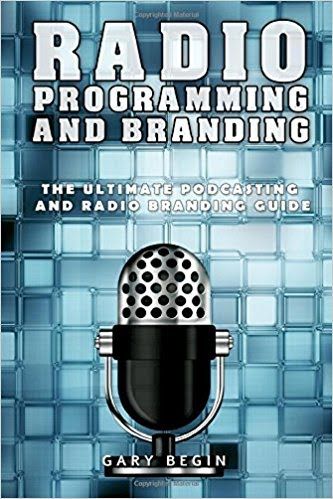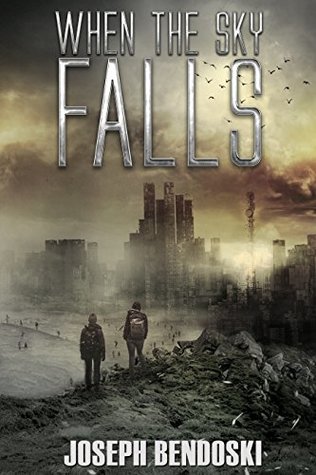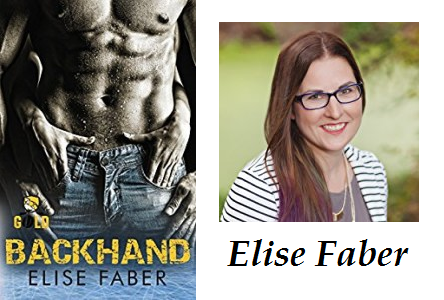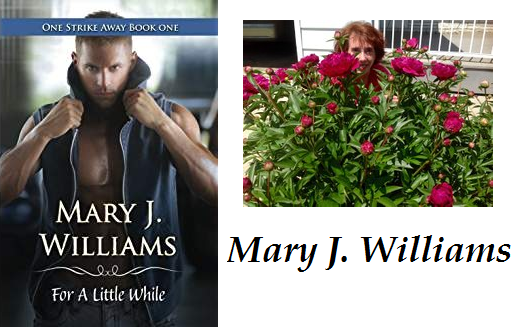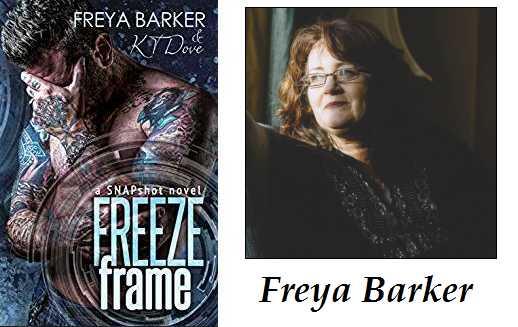Thriller / Espionage / Conspiracy / Historical
Date Published: March 24, 2017
“What makes you believe a lie? I’m not asking how you know someone is lying. What makes you believe? Because if you don’t understand how that works, then you won’t know when you’re being manipulated.”
In 1938 the War of the Worlds hoax panicked millions of Americans, then in 1988 another fictional media broadcast convinced nearly half of Portugal that sea monsters had risen from the ocean to destroy their cities. A team of CIA agents was sent to study the aftermath of this 6th Skyfall Event in the hope that they could turn it into a weapon of war. When the team consultant turns up dead, everyone scrambles to be the last man standing: the one who will decide if or when the sky falls.
“What makes you believe a lie? I’m not asking how you know someone is lying. What makes you believe? Because if you don’t understand how that works, then you won’t know when you’re being manipulated.”
William Stephenson, The Nature of Sky Fall Events
Porto, Portugal. October 30, 1988. 8:13 p.m.
The lights flickered and went dark, that’s when it started. Luis reached up and adjusted the bulb with his fingers. The hot glass burned his skin. He gritted his teeth as the sensation grew stronger. He doubted the bulb was the problem. The TV, fan and even the street light outside the apartment all died in the same moment. “Is this normal for an earthquake?”
Car headlights flashed through the windows reflecting off Renata’s long, dark hair. “It’s not an earthquake. They already said that.”
Luis let go of the bulb. Only a moment ago, the emergency broadcast system had come on the air. It’s strobing red light, and high pitched siren blared through every apartment. It was followed by men in lab coats being interviewed. They warned everyone that something was coming, and before they could finish the power cut out, the one thing they had said was, “it’s not an earthquake.”
The street outside the window was still lightless, and Luis went to check the fuse box. It wouldn’t do much good. If the entire neighborhood lost power, it clearly wasn’t a fuse, but at least it was something to do.
Renata took his hand. Her fingers trembled. “It’s not the fuses; it’s not our lights. Let it go.” Behind her, the old cement walls were spidered with cracks. They had been like that when they moved in.
“I don’t know what else to do.” He pressed his lips together and looked out the window. Outside, a family loaded into a car; the trunk overflowed as the father kicked at it until the latch held. They piled in, each with a pack on their lap. The mother sat in the passenger seat. In her hands, she held a pistol. Her husband got in, and the car roared to life. A few people emerged onto the street carrying packs, or bags. They all headed east, away from the coast. That’s where the scientist said it would start, on the coast.
“The phone lines,” Renata’s voice wavered, “They use a different power source than the electrical grid, right?” She wiped at beads of sweat forming on her forehead. “For emergencies, right?” She swallowed hard. “I’ll try and call my mom,” She picked up the receiver and held it to her ear. The lines in her face deepened the longer she held the phone. She frowned and jabbed at the disconnect lever several times. “The phones are dead.” Her skin paled. “The phones,” she licked her dry lips, “are dead.”
Luis was still for a long time. Strange muscles deep in his stomach twisted. Something terrible was happening, and he couldn’t do anything to stop it. He didn’t even know what it was. There was a worry in her soft brown eyes; he wanted to protect her, keep her from feeling this way. He walked over and put his hand on Renata’s cheek then kissed her. “We’re leaving.”
She nodded towards the bags they’d started to prepare midway through the broadcast. “Do you think this will be enough?” She rested her head on his chest.
The electricity surged back, lights blazing to life. The TV flashed it’s red warning again. After a moment, it changed to a camera feed from inside a helicopter. A reporter bobbed in and out of the frame. “We’re flying over the city of Vila de Conde, only a few kilometers from Porto.” He pointed to something off camera. “While it seems a much weaker force is headed this way, it will strike here first. That should give us some idea of what to prepare for.” The wind whipped his hair wildly and drowned his voice out. The camera focused in over the ocean. White edges of curling waves shifted as they crashed against the shore. City lights reflected on the water; then the whole city blinked out. “What the hell?” The camera jerked up over the blackened city. A loud guttural cry screeched through the TV speakers, and the reporter's voice shouted, “What in God’s nam—” The image on the TV shook and rotated like someone dropped the camera, then the screen cut to static.
Every beat of Luis’ heart pounded in his chest, teeth, and fingers. He waited for the static to end, for someone to come back, to tell them what happened.
Renata grabbed his hand; her pulse was rapid; throbbing in the vein on her neck. When she spoke, the words sounded strange like her mouth was dry after hanging open for too long. “What’s happening?”
Through the window, they saw a car slam into the small market across the street. Glass shards toppled down and shattered on the hood. Two men got out and kicked at the remaining jagged edges. With sacks in their hands, they hustled inside and filled the bags with food and supplies. They tossed them into the backseat and doubled back for more. A box of spaghetti fell out of the passenger side and burst open. Noodles splayed out on the pavement, breaking under the boots of the men as they hurried back and forth.
“I need to get something.” Luis rushed to the bedroom and pulled a pistol from under the bed. He loaded it and placed several ammo boxes in a bag before returning to his pack in the living room.
The static on the screen finally ended. A news anchor sat at a desk; sweat dripped down his face. He wiped at his brow. “It’s clear now, from this footage.” A small image on the side of the screen grew larger. It was a distant shot of the city of Vila de Conde. The entire coastal edge was gone. The hotels, resorts, beach houses. All gone. Some bits of rubble smoldered in the darkness. “This has been some sort of attack.” He stopped, and his face became stern. He sprayed saliva as he shouted at someone, “I can’t … God damn it … I can’t say that on TV. No one will believe it!” He shoved the desk over and stood; then turned and walked a few steps towards the back of the set.
A husky male voice came from off screen. “Do you believe it?” There was a pause, but the anchor kept walking. The husky voice spoke again, pleading this time, “Someone has to tell them. They have to know.” He yelled with urgency in his voice, “We saw them!”
The newscaster stopped and looked over his shoulder at the camera. “Tell them to run.” He disappeared off camera, and the screen went to static.
The lights flickered a second time, then went dark. Luis held his hand over his mouth. He stopped breathing for a moment and counted his heartbeats. He waited, but the lights didn’t come back.
With heavy packs strapped to their backs, Luis and Renata staggered into the street towards their car. A traffic jam built up behind the vehicle that had crashed into the market. People dashed inside, stealing food. The narrow European street swelled with a growing mob as they disembarked their cars to investigate the problem.
A man got into the obstructing car and attempted to reverse out. The center of the frame teetered on the curb, and the wheels spun over the slick cobblestones.
A massive man with a thick beard exited his truck. “What’s wrong with you?” He thrust crude gestures with his hands, then stopped and summoned the other stalled drivers to the stranded car. He pantomimed his intention.
Seven men gathered around the small European car and tipped it onto its side, but the vehicle still blocked the road. They shoved and kicked, but the road wouldn’t clear. Thick-beard threw up his hands, gathered his gear from his car and started walking.
Luis’s eyes widened. “I don’t understand it.”
“Do you need to?” Renata gripped his shoulder, the tips of her nails bit into his skin. “They told us to run.”
Abandoning their car, Luis and Renata joined the panicked herd. They ran, shoved and bumped into each other as they maneuvered around the empty cars. The weight of the pack made Luis unstable as people jostled against him. As each person collided into him or reached out to stabilize themselves, his balance wavered. The straps dug deep into his shoulders. The heavy load labored his run. People were constantly pressing past. He made Renata go first so he could keep an eye on her.
A tall man with wide shoulders shoved Luis into the side of a car. He stumbled and grabbed the mirror to keep from falling. Renata screamed. He turned as she plummeted to the ground a few feet away, disappearing into the mad swarm of human bodies.
Luis surged forward ramming people until he found her. He tried to help her stand, but the mob kept pressing forward, and Luis fell on top of her. A foot crunched down on his hand; then a knee jabbed into his ribs. Droves of people crashed against his body. His hair got caught on something, and it ripped a patch from his skull. A trickle of blood dripped from his scalp onto Renata’s face.
Luis pressed his lips to her ear. “The gun is in my pack. Fire the gun.” He didn’t feel her searching the bag, too many hands, knees, and elbows jabbed and thrust into him, but he heard the gunshot, next to his ear. It thundered, and his whole body tensed. The thundering didn’t end. His ear rang, and it felt like someone was trying to hammer a nail into his brain. He saw Renata’s face, she was shouting, but he couldn’t hear her anymore, couldn’t hear the crowd, the waves of pounding feet on stone, just a high-pitched pierce in his ears.
The crowd stopped pressing down on him. They’d backed away. He got to his feet. Renata still lay on the ground. Luis dragged her into the bed of a truck. She cried and kept trying to say something, but he couldn’t hear it. Her face flexed in pain. He scanned her body and saw the ankle. Human bodies, human feet don’t bend like that. The tibia seemed to be jabbing down through the foot, forming a large bulb at the bottom, and the ankle swelled thicker than her leg.
The crowd swarmed back. Luis slumped down beside her. His eyes lingered on her face, her eyes. She couldn’t walk, not on her own. Whatever was coming would catch them. How will you take care of her? Luis took the gun from her hands. He studied the pistol for a long time, its dark oily finish, the weight of it in his hand, a weapon. If he couldn’t run, then he would fight. He crawled out of the truck bed to the car just behind. He rested the pistol on the hood and stared out into the darkness. Luis saw the white curling waves. Whatever it was, came from the ocean, he knew that. He waited a moment, watching the water, trying to see it. Nothing, just darkness. He pulled the trigger then looked at Renata. Broken. Helpless. His eyes welled up with tears. Fight. Even if you can’t see it. Fight. He fired again, fired until the gun was empty.
------
Pedro stood on a grassy hill overlooking the city of Porto. His eyes were bloodshot and puffy. Flashlights bobbed in the dark like swiveling dots, spreading away from the coast and into the countryside. He wiped the back of his hand across his forehead. It came away with a mixture of dirt, sweat, and mud. He’d marched his family through the dust cloud of the exodus. He and his wife, Beatriz, had fought with sticks to protect their young children as they ran through the streets. The blood streaks on Pedro's knuckles were only partly his. He reached for the canteen around his neck and poured out a small handful of water to wash his hands.
Beatriz slipped her fingers through Pedro’s gray-streaked hair. “Can I have a drink?” In her arms their two-year-old slumbered, dirt crusted snot clung to his nose. One arm hung loosely away from his body.
Pedro lifted the canteen to his wife. “Anything new on radio?”
She finished her drink. “Still just static.” She kissed her son on his forehead, and her wet lips came away powdered with dust. “I turned it off an hour ago. We should check again.”
“Yeah.” Pedro nodded and headed towards the tents and campfire. His two older children were sprawled out next to the flames. On a tree stump sat a battery powered radio, its antenna tilted toward the city. He could make out the larger buildings by moonlight, but nothing electrical brightened the horizon. He flipped the radio on. Static buzzed through the speakers.
“You have to help it.” Beatriz approached and placed her hand on the antenna. The static cleared, and a voice filled the camp.
Pedro’s entire body stiffened at the familiar voice. The reporter who had refused to say what he had seen, the news anchor that had walked off the camera. The man who told everyone to run. His voice was heavy with emotion. He admitted he was an actor, and the entire scare had been a hoax. He took a deep breath and repeated the message.
“Holy mother of God.” Pedro dropped his head into his hands. “It wasn’t real. None of it was real.” His voice trembled. “We left everything.”
Beatriz stumbled and then lowered herself to the ground. Her eyes welled up. “We’re safe.” She kissed her son repeatedly. “We’re safe.”
Pedro jerked up. “Safe?” He raised his voice, the tone sharp, “Safe?” He thrust his arm towards the city and pointed. “They lied to us.” He picked up a rock and lunged to his feet, running towards the distant city. He hurled the stone into the open plain below. “Why!”
After a long moment, Beatriz pulled him close. “The power is still out. That was real. Something happened.”
Pedro stared down at the city. The flashlight dots had changed direction, but the city remained dark. His body numb, he slumped down, never taking his eyes from the city. The message on the radio continued to repeat. It had been a hoax, a lie. The radio cut to static and a single light sparked in the city. It grew into a massive flame taller than any building. The fire burned brighter throughout the night but never spread. Something had happened, not the lie they told, but something.
------
The Old CIA Building, Langley Virginia. 10:09p.m.
Silas Cooper sat behind his desk reviewing surveillance reports. His black hair slicked with a heavy gel that reflected the light. He ran his hand through it and some collected along the edge of his finger. He rubbed it aggressively into his skin until only a sheen remained. Someone knocked at the door but opened it before Silas could respond.
Costly, in a vested suit, entered holding a stack of Portuguese Escudo bills bound with a rubber band. He swaggered over to Cooper’s desk and tossed the money down. “Guess what?”
“I don’t have time for your bullshit. What do you want?” Silas’ lips curled downward, and his chin tightened.
Costly flashed a crooked, toothy grin. “There’s been a Sky Fall Event in Portugal.”
The room went still and Silas chuckled. “Finally.” He let out a contented sigh. “How big?”
“Half the coast. Multiple cities.”
“Jesus.” Silas’ smile faded. “Where’s Stephenson?”
“Shit, you’re not going to like it.” Costly hung his head. “As far as we know he’s in London —“
Silas cocked his head to one side, then back to the other. He pointed at his colleague with the file in his hand. “Now, I know you're full of shit. I ought to break your teeth for this.”
Costly held up his hand apologetically. “No jokes. It happened, and he is that close, but,” he directed Silas to wait with an index finger. “He doesn’t have his plane with him. He’ll have to take the trains, and that should buy you some time.”
“Not enough.” Silas pocketed the money. “Get me Stephenson’s list. Cross out anyone not fluent in Portuguese or Spanish.”
“Already done.” Costly pulled a file from his briefcase. There were two columns of names; all but one were crossed out.
“Jay Nichols,” Silas read. “What’s his experience?”
“Two weeks here in Langley.”
“Are you God damn kidding me? You want to feed a puppy to the lion?”
About the Author
Joe Bendoski study psychology in college and was fascinated by all the insights it provided into human behavior, only to realize most the information never reach people, and when it did, rarely was it in a form that allowed for practical application. He started writing non-fiction, but soon came to understand how few people read that genre and began the difficult transition into fiction writing. His non-fiction works include; the Chemistry of Attraction and the Language of Emotion.
He worked as the head writer for the television show ‘Saved by Grace.’ After being frustrated with comments like "make this scene cheaper," "What's my motivation?", and "Do we need this scene?" he deiced to go in to literature.















